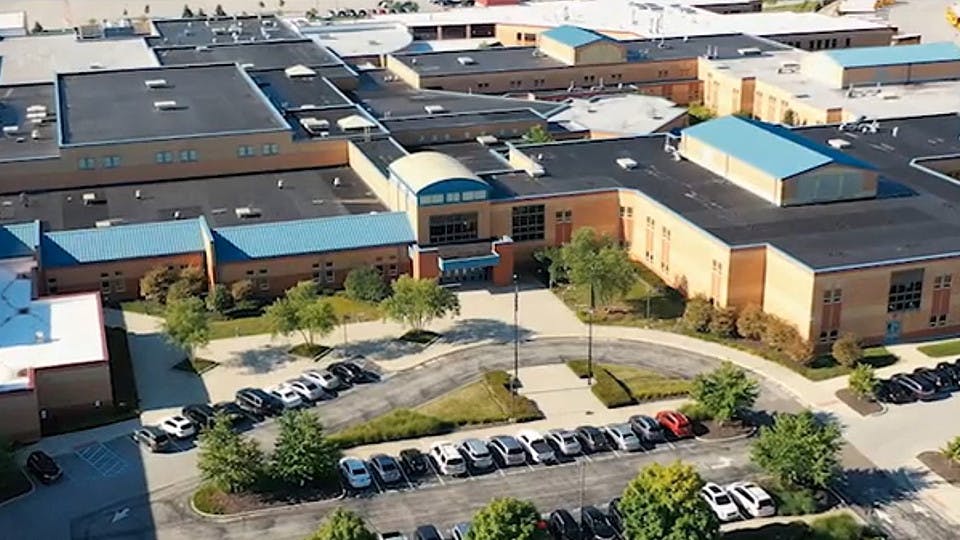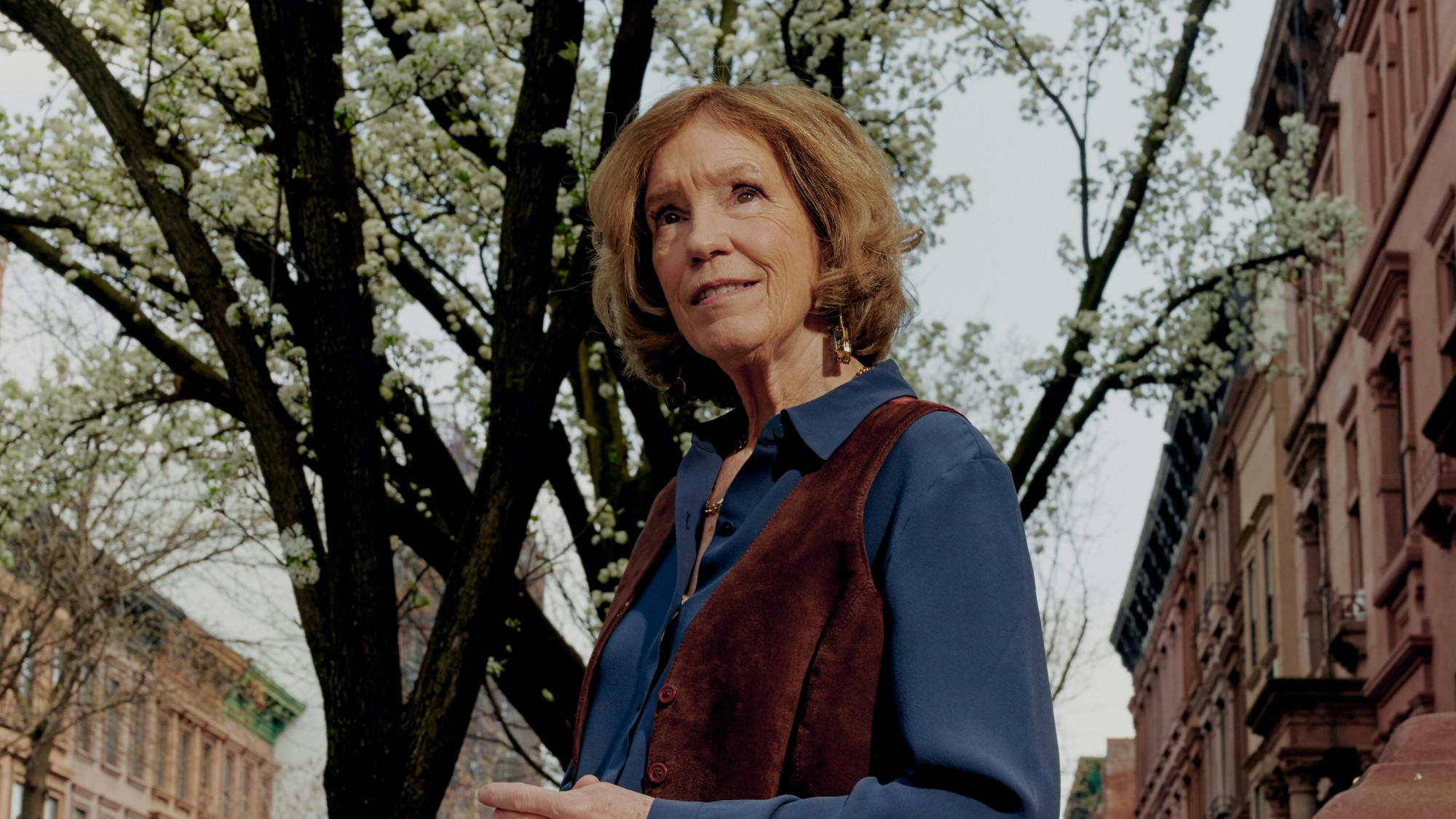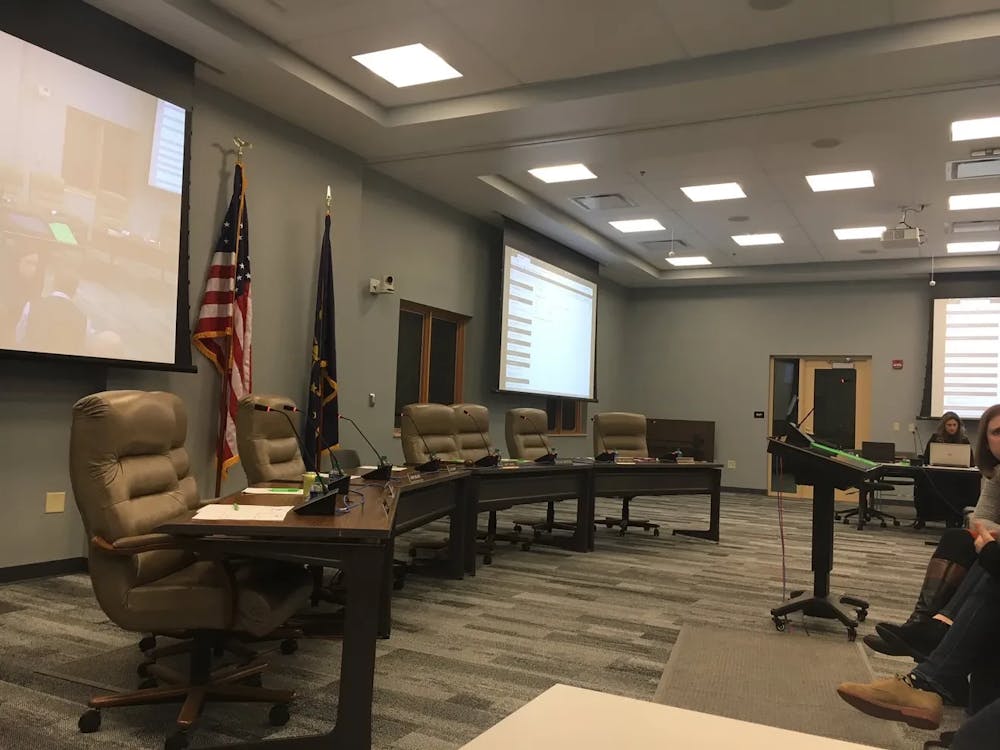A debate is raging in Fishers, Indiana and across the country over the role that public education should play in the lives of students.
The modern public education system in the United States is almost 200 years old, and as society has progressed, many have suggested that the school system should evolve with it.
Gwen Keller-Lusk is working to bring about change in the Hamilton Southeastern School District (HSE). A nonprofit owner and stay-at-home mom, she is a member of HSEqual and the treasurer of their associated political action committee, HSEqual PAC.
HSEqual was founded in 2019 by community members advocating for a nondiscrimination policy that included protections for transgender students. Now the organization has a broader focus on equity in general, pushing the district to seek an equal outcomes approach for students.
Keller-Lusk has spoken at numerous school board meetings and has outlined the disproportionate rates of suicide in the LGBTQ+ community, which she ties to discrimination and bullying.
The organization’s scope has varied from supporting pronoun use in the schools, supporting the ability of transgender students to use the bathroom in accordance with their gender identity, speaking against the former superintendent after he referred to Black Lives Matter as a political organization and countering what they view as unnecessary regulation of what books are allowed to appear in the school library and the children’s section of the public library.
Equity, however, can be difficult to define in objective terms. Merriam-Webster defines it as “justice according to natural law or right,” or more specifically “freedom from bias or favoritism.”
“Equity is meeting people where they are and providing them with resources and opportunities as needed to create equal outcomes for all community members,” said Keller-Lusk.
Diane Eaton, former nurse and owner of Birthwise Perinatal Healthcare Services, former HSE School Board Trustee from 2006-2014, and current Fishers business owner, founded Fishers One in 2020. She has a different idea of what equity entails.
“I have looked at the improvement plans laid out by HSE schools, and they have used the word equity. However, their plans for equity do not bring about the opportunities for everyone to succeed,” she said. “I feel strongly about the fabulous education I had in grade school and at the IU school of nursing, which gave me a good foundation for my career and helped me to be an entrepreneur.”

Fishers One is a community organization whose mission statement includes “working towards a curriculum focused on traditional education standards to equip all students for the future, minimizing distractions attributed to non-core curriculum programs, ensuring parents are the people responsible for the social and moral development of their children, and increasing transparency about the hiring of school leadership, the establishment of budgets, and any new curriculum,” pushing the district to seek an equal opportunities approach to education.
Part of what sparked the formation of Fishers One was the school district’s response to the COVID-19 Pandemic.
“We have great administrators. Why was HSE one of the last schools in Hamilton County to reopen?” Eaton said.
Eaton went on to define equity as “creating equal opportunities for all to obtain a quality education” and “motivating them to use the opportunities they have,” which she emphasized was important to help students grow into competent community members with foundational skills.
Eaton was also worried about what she viewed as a rise in political activism among some teachers.
“There are professional organizations of teachers [like the National Education Association], that have emphasized political activism,” she said. “Activism often takes the form of complaining. It is easy to say you don’t like something, but much harder to offer positive solutions or a pathway out. That is what Fishers One tries to offer. We are trying to raise a generation of critical thinkers.”
Keller-Lusk, however, would disagree.
“Learning isn’t possible when kids don’t feel safe,” she said. “With all of this talk about ‘academic excellence,’ [by groups opposing HSEqual’s endorsed candidates] anyone in education will point out in response the achievement gap between white students and students of color. I haven’t heard anything from them on how they plan to address that. It is a factor in our test scores, as for schools across Indiana, and I don’t know how they plan to address this without addressing the issues of inequity that often create those gaps.”
However, Eaton did mention a policy change they advocated for and that was implemented this year by the current school board that might help address these gaps.

Lucy Calkins, a professor of education at Columbia University, is responsible for creating one of the most widely used reading instruction programs in the nation called Units of Study. HSE used the curriculum last year, but Fishers One and others pushed them to adopt a different program, as recent research has suggested that Calkins’s program may have some critical flaws.
According to a report by the American Public Media, the program teaches an idea known as three cueing, which “encourages children to look at pictures and use contextual clues to identify words as they are reading,” but “scientific research shows that skilled readers do not use cues to read words and that instructing children to use these cues teaches them the habits of struggling readers.”
According to this report by literacy experts Marilyn Jager Adams, Dr. Lily Wong Fillmore, Dr. Claude Goldenberg, and others, while the curriculum can be beneficial for students coming into school already reading or with some elementary knowledge of reading, those who need additional help in some areas tend to struggle more.
This is important because according to a report by the National Institute for Early Education Research, Black students nationally are seven months behind their white peers in reading skills on average when they enter kindergarten because they are less likely to have access to good preschool and pre-K programs. That divide only grows as students progress to fourth grade, where only 18% of Black students read at grade level, compared to 45% of their white peers nationally according to the Nation’s Report Card.
"Rigorous, quality curriculum... raises everyone up," said Eaton.
Fishers One has also pushed for “full curriculum transparency” with parents of students to “ensure academic excellence."
HSEqual PAC and Friends of Fishers PAC, which is associated with Fishers One, have endorsed different slates of candidates for the HSE school board. HSEqual PAC supports Jackie Howell, Janet Pritchett, Dr. Carla Cork, and Julie Chambers, the current school board president. Friends of Fishers PAC supports Tiffany Pascoe, Dr. Juanita Albright, Dawn Lang, and Ben Orr.
Both Keller-Lusk and Eaton feel strongly that these races are important for college students to understand.
“We are in a nationwide teacher shortage, which is especially true here in Indiana.” Keller-Lusk said. “School boards can work with teachers, or be hostile towards them. If our teacher shortage continues to grow, the standards of education in Indiana are going to continue to fall, so there won't be as many kids going to college. Graduating college students may decide to look out of state for employment because of quality of life issues, and more and more students who might have wanted to study to be teachers will choose another major instead.”
According to an article from Chalkbeat, the reality of the national teacher shortage is more nuanced, and reasons for teachers leaving the profession have varied.
Many teachers left the profession due to the COVID-19 pandemic or COVID-19 related policies, while others left due to student behavior or a general lack of educational freedom. School boards can play a role in all of these issues with the policies they set for the school district, although it is not clear that these can be directly tied to equity.
Eaton recognized that it can be difficult to understand the importance of smaller elections like these.
“In college, you should want all of your fellow students to do well, be knowledgeable and be successful,” Eaton said. “When you get out and are the next generation leading, you should want people to be able to do quality work because you will have to buy that work. It is important to have competent community members that provide quality services you want, and your education should focus on foundational skills that people in business need to produce products you like.”
Overall, the equal opportunities approach to education, advocated for by Fishers One, emphasizes competency, creating students that are capable of using the opportunities given to them to succeed.
The aim, according to Eaton, is to “lift students up to their potential.”
“The people who invented companies like Amazon and Apple had to know how to read and write. That took more than activism,” she said.
The equal-outcomes based approach to education, advocated for by HSEqual, on the other hand, emphasizes inclusivity. To some degree this involves providing exceptions from standards which may be perceived as harsh, or misused to exclude others, in addition to providing safe spaces from judgment.
Both Eaton and Keller-Lusk hope for a society where all students can be successful.
It is certain that this campus will be affected by these elections, as many students from the HSE school district later become students at IUPUI. In fact, Fishers High School had 265 applicants to IUPUI in 2021, the fourth highest number of any high school in the state. As a university that values both inclusivity and competence, it stands to benefit from both approaches to education.
The school board candidates endorsed by both groups are on the ballot for residents of Fishers on Nov. 8. Regardless of who wins, it is likely that these educational philosophies will be debated for years to come in Fishers and across the United States.
UPDATE: The school district voted to adopt a new reading curriculum which was implemented this year. Mention of the listed goals of Fishers One was also removed, as it was deemed redundant. Diane Eaton's occupational history was also updated, as was a quote on curriculum relating to Lucy Calkins. The Friends of Fishers-backed candidates won all four seats to the school board in the midterm election.
Jacob Stewart is a junior majoring in neuroscience at IUPUI with the intent to pursue medical school. He has written for The Campus Citizen since Fall of 2021, and took on the position of campus editor in May of 2022.





